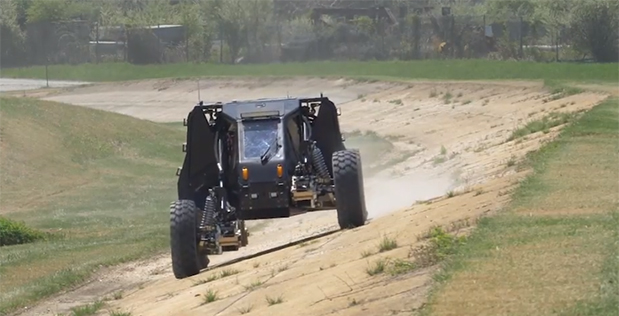
The Defense Advanced Research Projects Agency (DARPA) recently expressed optimism regarding efforts to enhance combat vehicle safety and effectiveness.
The agency’s Ground X-Vehicle Technologies (GXV-T) program also seeks to improve mobility and survivability of future combat vehicles without piling on armor.
DARPA officials said several Phase 2 contract awardees recently demonstrated advances on a variety of potentially groundbreaking technologies to meet the program’s varied goals.
A demonstration conducted at the Aberdeen Test Center showed how future combat vehicles could traverse up to 95 percent of off-road terrain, including slopes and various elevations enabling wheel-to-track and suspension technologies providing access and faster travel both on- and off-road, compared to existing ground vehicles. It also exhibited use of Pratt & Miller’s Multi-mode Extreme Travel Suspension (METS) system to enable high-speed travel over rough terrain while keeping the vehicle upright and minimizing occupant discomfort. Additionally, the demonstration showed how Honeywell International utilized its windowless cockpit in an all-terrain vehicle (ATV) with an opaque canopy, as the 3-D near-to-eye goggles, optical head-tracker and wrap-around Active Window Display screens provided real-time, high-resolution views outside the vehicle.
“DARPA’s excited about the progress made to date on the GXV-T program and we look forward to working with the Services to transition these technologies into ground vehicle technologies of the future,” Maj. Amber Walker, program manager for GXV-T in DARPA’s Tactical Technology Office, said. “We’re looking at how to enhance survivability by buttoning up the cockpit and augmenting the crew through driver-assistance aids. For mobility, we’ve taken a radically different approach by avoiding armor and developing options to move quickly and be agile over all terrain.”




